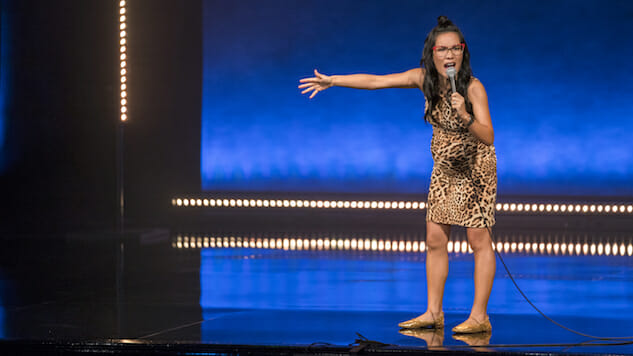Ali Wong Tells It Like It Is in Hard Knock Wife
Photo via Netflix
The qualities that made Ali Wong’s Netflix debut Baby Cobra such a surprise hit back in 2016 are front and center in Hard Knock Wife, which suffers from no sophomore slump that I can see. Wong’s signature bring-the-whisper-to-a-shout delivery—which plays the audience like a fiddle here—captures the bravura of a club comic without the showy dishonesty that sometimes accompanies it.
-

-

-

-

-

-

-

-

-

-

-

-

-

-

-

-

-

-

-

-

-

-

-

-

-

-

-

-

-

-

-

-

-

-

-

-

-

-

-

-








































